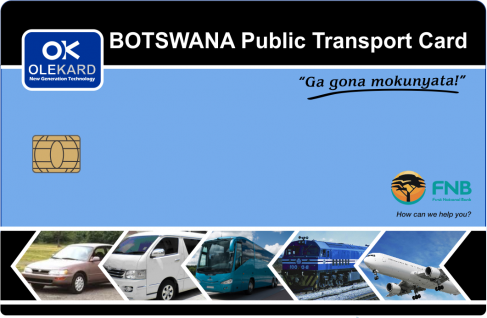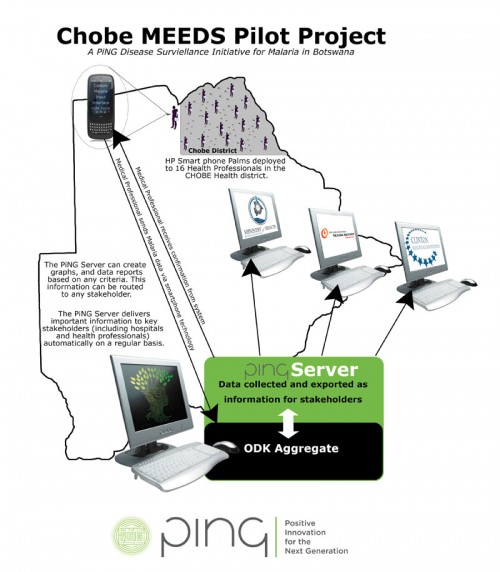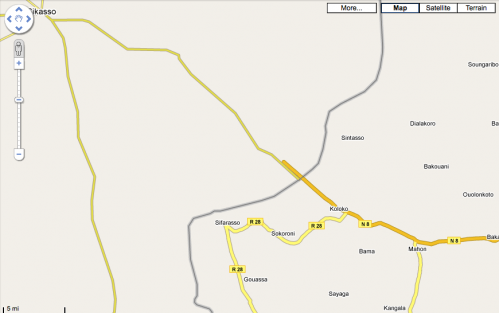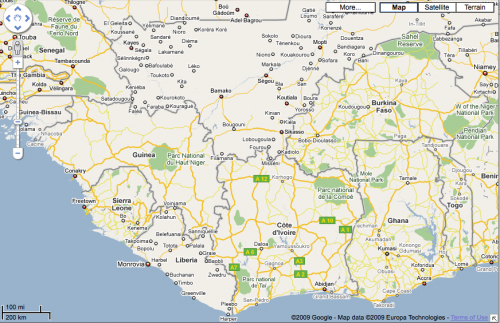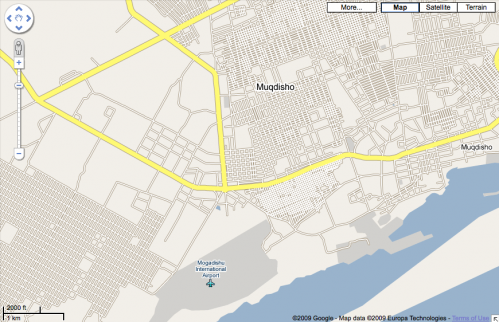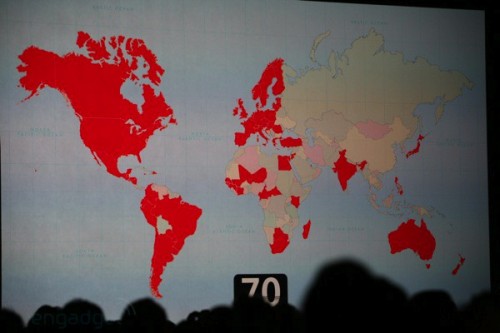This week finds me sitting in Botswana. I’ve talked to a couple startup entrepreneurs; Pule Mmolotsi who is testing out an Oyster-like payment card for public transportation in the country, and Katy Digovich who is creating mHealth apps for the Ministry of Health. While only a small sample, they do a good job of representing what I continue to see around the continent; a new generation in Africa trying new ideas and taking to technology to cut the way forward.
Five years ago in Tanzania we had TED Africa, where George Ayittey coined the term “cheetah” to represent the new, younger generation of Africans trying to make a new path. He contrasted them to the “hippo” generation, the slow and often-times corrupt individuals, whose primary role seems to be stifling growth and filling their own pockets. In this context, they are the ones who were (and many still are) in power within government, NGOs, academia and big corporations. It was a captivating talk, and you can watch it here.
While somewhat melodramatic, it framed the conversation. It has provided a good lens through which to think about who is doing what around the continent. More importantly it gives us a frame to realize the rift between the old and the new, not necessarily best delineated by age, but by mindset and approach.
Tackling Transportation Payments
Pule is an inventor and entrpreneur who’s had most of his success come from biometric devices. His new product, Olekard, is very similar to what Google is trying to do with the testing of their Beba Card in Kenya. Anyone familiar with traveling London’s tube system or buses doesn’t need an explanation of how this works. Basically, you get a card that you load money onto, this card is then waved over a terminal on the bus/matatu/combi/train and you’re done, you can take your seat as you’ve just paid.
Benefits include it being safer for people, as they’re not walking around with as much cash on them. It’s easier for the transportion owner to track revenue and decrease theft by driver and tout. For riders, they get a discount on the price from what they would normally pay in cash. Incentives are almost aligned.
The one final bit is how do you incentivize the drivers and touts to not sabotage the device in order to force cash usage. Afterall, that’s how they make good money on the side, by skimming off the surface of what’s due the owner. I’m not sure how that will be handled, but I’m wondering if paying a “bonus” to these staff based on revenue would help.
It’s a good idea, needs a moderate amount of funding ($25k) to go beyond it’s currently small prototype stage, and best of all he already has signed relationships with a route owner with 40 vehicles and a major bank to provide the float.
It’s a tough job, where Pule has to spend most of his time bringing together disparate communities, large corporate entities and old power brokers in order to become successful.
Mobile Health Partnerships
Katy is from the US and has lived in Botswana for the last 3 years, she currently heads a non-profit called Ping that does mobile health apps and also Develo, which does for-profit type work. (side note: put those two companies together and you get Develo-Ping)
Like her counterparts in Kenya, Ghana and elsewhere across the continent, she was attracted to the opportunities in Africa’s tech space. Katy has built up a team of young, energetic developers and they’ve had a good amount of success working within the aforementioned hippo pools, such as the Ministry of Health.
Fortunately for Katy, she’s in Botswana, where there is more wealth and fewer people. The government here seems more intent on actually solving problems with new ideas, and they have both the willpower and funds to make that happen (healthcare is free to all Botswanans). In conjunction with HP, U-Penn and Clinton Health Initiative, they’ve had success in getting the project off the ground.
I didn’t get to see this app first-hand, but I understand it’s made for Android phones and uses the Open Data Kit (ODK). Doctors and nurses in more remote areas can send in pictures of some malady, and have an expert give feedback on the probably issue and remedy needed.
Like any young company, Ping has to figure out service delivery and maintain quality control on their apps, all while working within a much larger and more bureaucratic institution. It’s not easy, and it means more meetings, great communication on managing expectations and real scope change management.
Swimming with the Hippos
I don’t envy Pule or Katy’s their jobs, it’s not easy being an entrepreneur.
It’s in this space where government, large organizations and startups meet that hope can be found. The larger organizations have the cards stacked against them to innovate on anything. The small organizations with great new ideas, find it hard to scale without partnerships.
When large organizations are open enough to bring in outsiders and revisit old laws or rules in order for change to happen, there is hope.
When small organizations are humble and patient enough to work with larger ones, then big change and big money are both possible.
